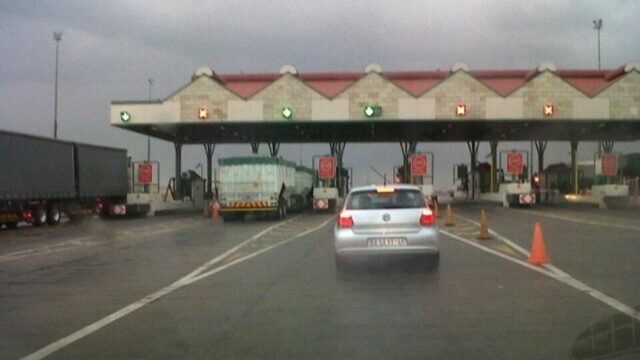South African motorists, who have already had to endure a fuel price hike, can expect to pay 6.25% more for toll fees across the country from March 1.
MOTORISTS, who have already had to endure a fuel price hike, can expect to pay 6.25% more for toll fees across the country from March 1.
In a public announcement issued on Saturday, the SA National Roads Agency Limited (Sanral) said the tariffs were adjusted in line with the Consumer Price Index (CPI) as obtained from Statistics South Africa.
“The annual toll tariffs will increase by 6.25%, as published in the Government Gazette of February 6. This rate is less than last year’s 6.58% adjustment.”
Sanral’s communications and marketing general manager, Vusi Mona, said the toll revenue was necessary to maintain, operate and improve toll roads, as well as to service debt incurred to implement a toll road project.
“Sanral is empathetic to the South African public, considering the current state of the economy.
“However, it is equally important to introduce the adjustments to ensure that the agency continues to deliver safe and quality roads to the benefit of all road users,” said Mona.
Gavin Kelly, CEO of the Road Freight Association, said the annual increases was close to CPI or inflation.
“Whatever the reasoning, the price of transport will increase, as with all increases introduced into the logistics chain. There will be a similar effect on the consumer once the ripple effect through the supply chain has reached the retail outlets.
“Unfortunately, whether we like it or not, there will be increases in the transport of goods – and passengers,” he said.
Kelly added that with the possibility of yet more fuel price increases being forecast, another cycle of constant increases will hit the consumer.
He said there are reports that the consumer has very little left to spare to accommodate increases of any nature.
“The medium-term prognosis is not good news, as transport is a critical factor in consumer spending – in terms of food/shelter/electricity/education/ transport and many other basic living necessities.
“More expensive transport will affect consumer spending behaviour – and there will be far less available funds to cover even the necessary things,” said Kelly.








